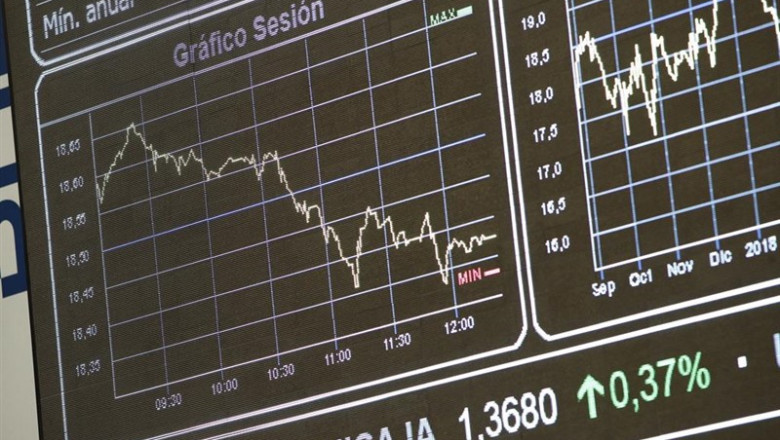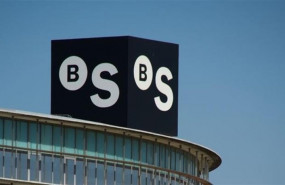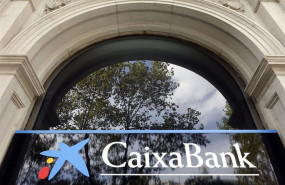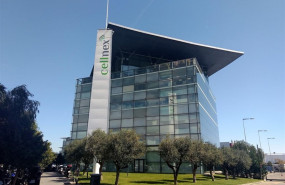
The Ibex 35 has closed the week with a slight rise of 0.6% with which it has managed to maintain the level of the 9,200 points it recovered on Tuesday. That day, the Spanish stock market closed its best session in three months (+ 1.29%) encouraged by the banks, which have fallen in the last two sessions of the week. These five days have been marked by the presentation of business results and the meeting of the European Central Bank (ECB) on Thursday. In addition to the failed parliament ballot for Pedro Sánchez and the official appointment of Boris Johnson as prime minister of the United Kingdom.
- 11.720,900
- -1,50%
On Friday, the Ibex has yielded 0.69%, to close at 9,225 points with CaixaBank and Sabadell, at the head of the bears. The entities have fallen 6.6% after presenting their quarterly accounts. But Acerinox has also fallen a 4.8% in the stock market after announcing that it obtained an attributed net profit of 69.3 million euros in the first half of the year, a figure 50% lower than that registered in the same period of 2018.
On the opposite side, Cellnex (+ 3.3%) has led the increases on the day it presented its results.
And all this during the hangover from the meeting of the European Central Bank (ECB) in July and the political soap opera of the failed vote in favour of acting President of the Government, Pedro Sánchez, who promises a dose of action this summer.
Investors will end up digesting the change in the future direction of the ECB, which left the doors open to a rate cut and a potential asset purchase program. On the other hand, experts warn that the Ibex is not immune to political turbulence and the absence of the Executive will eventually take its toll, while the parties decide whether to go to a second attempt in September or to elections on November 10.
But the market is rocked by banking. The Catalan entities were the protagonists on Friday. Sabadell is managing to leave behind the crisis suffered last year by the integration of the TSB platform and has closed the first half with a profit of 532 million euros. Compared to last year, the growth is 340.9%.
CaixaBank, for its part, has suffered in the stock market because it has had to assume this semester the cost of the Employment Regulation File (ERE) that it launched and has finally affected 2,023 workers, which amounts to some 978 million euros. Consequently, its profit between January and June has fallen by 52.1%, to 622 million. If the cost of the ERE was not taken into account, the entity's earnings in these months would only have increased 0.7%.
Outside the banking sector, Cellnex has also published and closed its first half of the year. The company has highlighted the increase in revenues (+ 11%), up to 489 million.
Euskaltel, AmRest and Ibercaja have also presented results and at the business level it has been highlighted that Telepizza says goodbye this Friday to the Spanish stock market for the second time in 23 years.
Beyond these elements we have continued talking about BBVA and that scandal that, although it is not significantly affecting the stock market, it is ending its reputation ... and takes a lot of time to recover. The entity has said that it will collaborate with justice after the Prosecutor's Office has requested his complaint and the ECB Vice President, Luis de Guindos, was very vague Thursday and made it clear that the case is in the hands of the courts.
Internationally, these days the appointment of Boris Johnson as prime minister of the UK, a supporter of hard brexit, has been made official, "which means greater volatility for the exchanges" they explain from XTB. Secondly, tensions between Iran and the US continue "and should boost the price of oil." As for the commercial war, we have not had great advances this week and the slight “truce” of last week remains. And in Spain the non-formation of government "does not surprise the market" and keeps volatility unchanged.
TECHNICAL ANALYSIS
From the point of view of the technical analysis, "again the bearish hollow of 9,410 points: the gap at the beginning of May" explained José María Rodríguez, technical analyst of ‘Bolsamanía’.
As you can see in the weekly chart of our selective closing this Friday "does not precisely invite optimism." Why? Because it leaves us a candle from more to less, closing near the minimum and with a high shadow (above). "Movement that convinces us of the idea we have been repeating again and again throughout the last weeks / months."
That if we do not close above 9,410 points on a Friday "the increases are over." And therefore, this opens the possibility that the Ibex will address the support.




